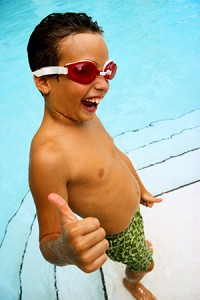ADD/ADHD — Drug-free treatments

ADD/ADHD is the most commonly diagnosed “illness” among school-aged children. On average, it takes less than 30 minutes for a doctor to write a prescription for Ritalin, Adderal or one of the many other drugs available.
by Mary M. Ernsberger —
“Maybe if you found a doctor who’d put him on medication, he would behave better.” How often have you been told the only effective way to treat attention deficit disorder or attention deficit hyperactivity disorder (ADD/ADHD) is to medicate your child?
We teach our children to say “No” to drugs. Yet, some children are given pills every morning, and at midday these same children line up at school to take another pill. The message is, “Just take this pill and everything will be better.”
America’s youth are the future of our country. The question is: Although we give lip service to the “drugs destroy dreams” message, are we actually creating a drug-dependant society?
According to Webster, the definition of ADD/ADHD is a “neurobiological disorder that manifests as a persistent pattern of inattention and/or hyperactive impulsivity that is more frequent and severe than typically observed in individuals at a comparable level of development.” Question: Who defines more frequent and severe?
ADD/ADHD is the most commonly diagnosed “illness” among school-aged children. On average, it takes less than 30 minutes for a doctor to write a prescription for Ritalin, Adderal or one of the many other drugs available.
According to Stephen V. Faraone, Ph.D, of the Harvard Medical School Department of Psychiatry, “By determining how people’s lives are impacted — starting from childhood — we can begin to help people take control and reduce the potential for life-long impairment.”
A recent study, titled “Capturing America’s Attention,” revealed that being diagnosed or labeled with this disorder creates stigmas that affect the person’s educational abilities, self-image, professional achievements and interpersonal relationships.
Drug-free options do exist to help those who’ve been diagnosed with these disorders. In 1995, the National Institutes of Health reported that meditation and other relaxation techniques are often a better treatment for a variety of illnesses than allopathic medicine.
The following are five drug-free options:
• Hypnotherapy and guided imagery: Every experience back to the moment of conception is stored in our unconscious/subconscious mind. Hypnotherapy and guided imagery are two similar and equally powerful techniques to aid in accessing that information. Building on that information, you can literally reconnect the left and right sides of the brain. This removes age-old negative thought patterns and empowers each person to reprogram his or her brain with positive, confidence-building thought patterns.
• Brain respiration: This educational method optimizes the brain’s functions through integrated body and mind exercises. Benefits include improved concentration, memory, scholastic aptitude, enhanced creativity and self-confidence. For more information: www.brainrespiration.com.
• Applied kinesiology: This process uses muscle testing to identify the cause of an individual’s difficulties and to heal that cause. Kinesiology allows a person to uncover information held on a subconscious level. It is a gentle and safe diagnostic tool that can help address physical, mental, emotional and spiritual issues.
• Emotional Freedom Techniques (EFT): EFT returns the mind, body and feelings to a state of balance. EFT has its roots in acupuncture, kinesiology and psychology. The only tools necessary are a general knowledge of the body’s meridian system and the ability to tap with your fingertips.
• Music therapy: Music has the power to transform people’s lives. It can enhance a person’s health, educational abilities and overall well-being. Numerous surveys have shown how studying music or learning to play an instrument creates a significant improvement in classroom performance among school-age children. The Mozart Effect, by Don Campbell, utilizes an innovative and experimental use of music and sound to treat listening disorders, dyslexia, ADD, autism and other mental and physical disorders. For additional information refer to www.mozarteffect.com.
These are just a handful of the available drug-free treatments. Most of these modalities can easily be adapted for use in the classroom. Both general and special education teachers can be educated about how these methods can be applied to everyday learning.
Parents can develop these skills as well. Each of these modalities empowers and motivates any individual with the desire to achieve their personal best.
Mary M. Ernsberger is a hypnotherapist and student of mind-body psychologyhypno4kids@yahoo.com.
Reprinted from AzNetNews, Volume 23, Number 1, February/March 2005.





December 3, 2014
ADD/ADHD, Children and Teens, Featured, February/March 2005 Issue